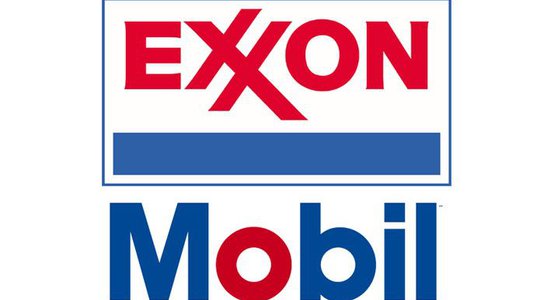US President-elect Donald Trump’s nomination of ExxonMobil CEO Rex Tillerson as Secretary of State would pose a grave threat to both US and global security and should be rejected by the Senate, Global Witness said today. Exxon is currently facing allegations that it misled the public over the science behind climate change, it has a long history of questionable deals with oil-rich countries around the world and it has consistently tried to undermine global efforts aimed at reducing corruption in the extractives sector.
It is critical that the US’ top diplomat acts in the interests of all Americans by promoting human rights, good governance and sustainable management of natural resources. This is key to achieving foreign policy goals like protecting national security, driving development, reducing instability and conflict and safeguarding the planet.
“This sets a very alarming path for the new administration, and therefore the rest of us. On Rex Tillerson’s watch, Exxon is accused of misleading the public about what it knew of the threat from climate change, for which it’s now under investigation by the New York Attorney General. At the same time it has systematically struck backroom deals with tyrannical regimes and been at the forefront of Big Oil’s efforts to gut laws that would reduce corruption in the oil, gas and mining sector. For all these reasons, he shouldn’t become our top diplomat or global representative on climate” said Corinna Gilfillan, Head of Global Witness' US office.
Investigations by Global Witness have shown how ExxonMobil or its corporate predecessor Mobil have engaged in questionable transactions with governments of oil-rich countries, including Nigeria (1), Kazakhstan (2), Equatorial Guinea (3), Angola (4) and Chad. Such deals have contributed to entrenching poverty, fuelling instability and violating human rights in some of the world’s most volatile regions.
Closer to home, Exxon’s insistence on keeping its payments to the US government secret threatens to undermine the US government’s commitment to a more open natural resources sector through a landmark global initiative called the Extractive Industries Transparency Initiative (EITI) (5). EITI requires member companies to report the payments they make to governments of participating countries; other oil companies, including BP and Shell, have done this in the US, while Exxon has chosen not to.
At the same time, Exxon is one of the leading companies in the fight against a landmark US law which would bring the notoriously murky oil industry into the open. The implementation of the law, known as Section 1504 of the Dodd-Frank Act, was delayed due to vehement opposition from the oil industry lobbying group American Petroleum Institute, in which ExxonMobil is a member, and Mr. Tillerson is a member of the executive committee and a former chairman (6). The implementing regulation was finally issued this summer, and it remains to be seen how Exxon will comply with it.
Furthermore, it has been reported that Mr. Tillerson and ExxonMobil have been critical of economic sanctions as a tool of foreign policy (7). In 2014 alone, ExxonMobil reported that Russian sanctions cost the company $1 billion (8). The next Secretary of State will be well-positioned to push for the easing or lifting of sanctions, and ExxonMobil stands to benefit if this happens.
Global Witness also questions the wisdom of appointing Mr. Tillerson as the most senior diplomat in charge of US policy on climate change, given that Exxon currently finds itself under investigation for misleading the public on climate change. Strong US leadership and action are required to meet the urgent and serious challenges of climate change.
Global Witness is alarmed about the company’s aggressive use of subpoenas against government prosecutors as well as environmental groups that have investigated and criticized Exxon’s record on climate(9). Such suppression of speech is contrary to our fundamental constitutional values, and risks chilling future dissenting speech.
/ ENDS
Contacts
-
Oliver Courtney
Notes to editor:
(1) See here
(2) Time for Transparency (2004) pp. 7-17. One of the largest ever foreign corruption investigations in US history targeted a middleman who received payments from Mobil (now ExxonMobil) intended for the Kazakh government, but kickbacks were skimmed for the Kazakh president (p.4).
(3) Time for Transparency (2004) pp. 55-64
(5) See here
(6) See here
(7) See here
(8) See here
(9) See here
You might also like
-
Press release Global Witness briefing: Oil sector secrecy scandal goes beyond Exxon and beyond climate change
Last week New York Attorney General Eric Schneidermann launched an investigation into ExxonMobil for misleading the public and investors on climate risks, with indications that the case may expand into other companies.
-
Press release Global Witness Report Sheds Light on ExxonMobil’s Questionable Dealings in Nigeria
A major oil deal struck by ExxonMobil with the Nigerian Government is being investigated by Nigeria’s Economic and Financial Crimes Commission, a law enforcement agency that investigates high-level corruption, Global Witness reveals today. The case highlights the need for the U.S. Securities and Exchange Commission (SEC) to create strong transparency rules for oil companies, which are due for release by this Monday, June 27th.
-
Press release Global Witness Report Sheds Light on ExxonMobil’s Questionable Dealings in Nigeria
A major oil deal struck by ExxonMobil with the Nigerian Government is being investigated by Nigeria’s Economic and Financial Crimes Commission, a law enforcement agency that investigates high-level corruption, Global Witness reveals today. The case highlights the need for the U.S. Securities and Exchange Commission (SEC) to create strong transparency rules for oil companies, which are due for release by this Monday, June 27th.